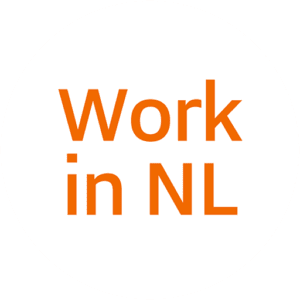Artificial Intelligence accelerating Energy Transition in the Netherlands
The Netherlands faces the challenge of becoming CO2 neutral by 2050. That requires a huge change in the current energy system. Especially for the densely populated Greater Rotterdam – The Hague area, where there is a lot of industry. Digital solutions, often driven by data science and artificial intelligence (AI) can play an important role in this. To gain a better understanding of the challenges and opportunities in this region, InnovationQuarter, TU Delft and nlmtd have explored AI as an accelerator of the energy transition. Eight key challenges were identified where there are opportunities for AI-driven applications in the coming years.
What has been studied?
In the exploration phase the AI hub Zuid-Holland consortium initiated conversations with key players in the energy transition in the Greater Rotterdam – The Hague area; companies in the field of energy generation, transport, storage and distribution, as well as building owners, industry players, trading/retail and governments. This has led to formulating about 40 challenges and obstacles for the energy sector. On the solutions side, companies that provide AI and smart data solutions, such as startups and knowledge organizations, contributed their ideas. Their contribution made it clear what possibilities and opportunities there are to solve the aforementioned challenges with AI. All parties were asked to prioritize the challenges in terms of importance, impact and urgency.
Key challenges
By combining the contributions of ‘problem holders’ and ‘solution holders’, eight key challenges were identified that are important for the Dutch energy sector. These challenges are central to the regional energy transition in the Greater Rotterdam – The Hague area, in which AI parties could accelerate a (part of the) solution in the coming years. Three of these are extra important for the region, because they match the profile and size of the heavy industry in the region. Accelerating the energy transition around these focus themes can be magnified with the help of AI.
1. Maximizing (own) energy production
Maximizing the industry’s own production of energy and heat is one of the key challenges. Industry uses a lot of energy and a lot of heat is released. Sometimes production comes to a standstill and sometimes it is supplied back to the grid. When supply and demand can be better matched, the production capacity of any company can be maximized. AI solutions can help with business-to-business (micro-trading). Optimized production and demand forecasting makes it possible to maximize based on expectations. An example of an AI startup active in this field is Whiffle. This Delft-based company specializes in technology for highly accurate, localised weather forecasting. Whiffle runs the calculations of its weather model on graphic processing units (GPUs), allowing local turbulence and underlying processes and conditions in the atmosphere to be captured in greater detail. Optimised by AI and machine learning, this is the world’s first operational weather model based on Large Eddy Simulation (LES). The company can therefore provide very fast and accurate weather forecasts that account for various factors such as the local effects of hills, buildings and wind turbines. For example, if you predict in great detail how hard the wind will blow, it is easier to estimate how much electricity a wind farm can supply at a given moment. The model can also be used to optimise the configuration of wind farms and better predict future energy yields. This could result in higher yields and lower financing costs.
2. Optimizing Maintenance
Due to maintenance and malfunctions at undesirable times, it is not always possible to optimally meet the energy requirement. With AI solutions such as predictive maintenance, assets can be maintained in a smart way and failures can be avoided. An example of an AI startup is Samotics. This Leiden-based company focuses, for example, on failure detection technology in machines used by industry. Its purpose is to reduce risk, lower costs, save energy and end unplanned downtime.
3. Preparing for the hydrogen economy
In the Netherlands we currently use hydrogen mainly in industry as a building block to produce other substances and materials. In the coming years, hydrogen will be used more as an energy carrier: a substance in which energy is stored, which is released again during combustion. AI can play a role in calculations between different energy carriers, on-demand production and tracing the origin of energy. Because the hydrogen economy is still in development, it makes sense that not many AI startups are active in this area yet. It is expected that major challenges will arise in this domain in 5-10 years that companies can respond to.
Future-proof energy network
Other major AI challenges in the Dutch energy sector mainly focus on future-proofing the energy network: demand and production forecasting in the built environment, asset management, optimizing management and real-time insight into the electricity grid.
Full report
The report clearly maps all these challenges, including possible areas of application. It contains recommendations, showcases and an overview of the landscape of Greater Rotterdam – The Hague area AI startups active in the energy domain. Examples are Clockworks (intelligent imaging), Gradyent (digital twin), Sobolt (deep learning) and Crownstone (smart hardware).
Greater Rotterdam-The Hague area, hotspot for mission-driven AI
Recent research reveals that the Greater Rotterdam The Hague area has a particularly high concentration of startups with applications in the fields of Life Sciences & Health, Port, Maritime & Logistics, Energy & Sutainability, Agri/Horticulture & Food, Security and Manufacturing (Smart Industry). This region is well-positioned to generate great impact in these domains. Also, there is a very substantial pool of companies with more general (supporting) AI services.
AI, data and digitization are essential to solve major scientific and societal challenges. The regional economic development agency InnovationQuarter helps companies develop innovations and find customers and partners to work together on the big challenges. There are various existing resources such as innovation programs, subsidies, field labs and funds in which InnovationQuarter can show the way.
Get in touch!







